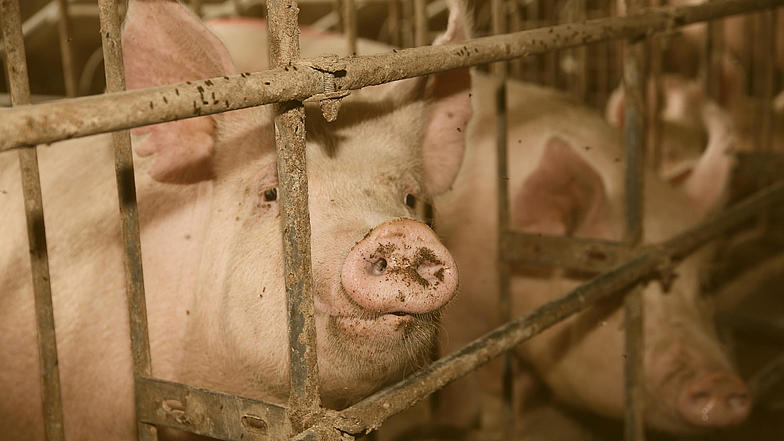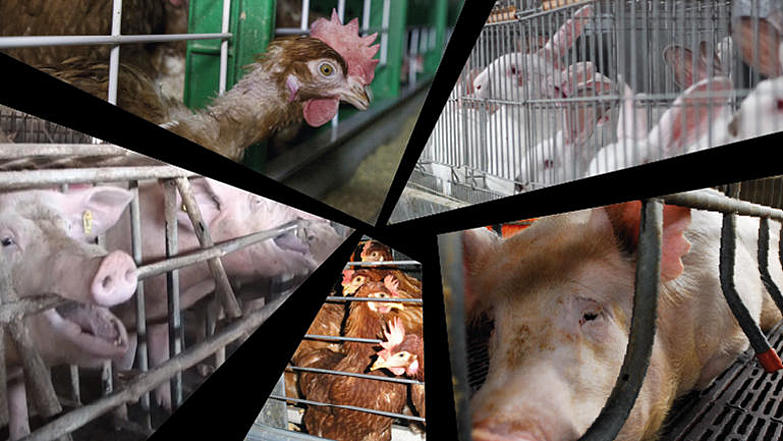1.4 million people have joined a European Citizens' Initiative against the caging of farm animals. The EU Commission could now put an end to the cruel practice.
Over 300 million farmed animals suffer in cages across Europe. From caged hens who long to stretch their wings to sows who want to mother their piglets unconfined, and rabbits who deserve the space to hop. Caging all these animals is cruel and unnecessary. foodwatch urges the EU to put an end to animal cruelty. An EU-wide ban is overdue.
In a few weeks’ time the European Commission will decide whether 300 million animals on European farms will continue to suffer in cages - or whether this animal torture will finally come to an end. Through a European Citizens' Initiative (ECI), 1.4 million people have called for a Europe-wide ban on caged farming. Therefore, the European Commission must now deal with the ECI's demands and decide whether it will introduce a corresponding law. Although this is urgently needed, there is apparently resistance to it in the trade policy section.
foodwatch demands clear animal welfare import criteria
That’s why foodwatch is increasing the pressure and calls on the European Commission to end the caging of all farm animals in Europe and to ensure that EU trade policy supports this ban. The campaign “End animal torture: Stop cage farming in Europe and via imports!” is addressed to EU Trade Commissioner Dombrovskis and President von der Leyen. The campaign follows the successful European Citizens' Initiative "End the Cage Age" and focuses on the issue that trade must not be used as an argument against the necessary improvement for animals in Europe’s farms. foodwatch is calling on the Commission to use border adjustment measures to guarantee that the end of the caging of farm animals in the EU will not be undermined by cheap imports.
The EU and the Member States are obliged under European law to take "the welfare of animals as sentient beings fully into account" in their policies. This is stated in Article 13 of the Treaty on the Functioning of the European Union (TFEU). In doing so, the EU must also protect better treatment of animals against cheap imports from third countries. In line with WTO rules, the EU can require that imports of animal products be based on the same animal welfare standards that apply in the EU's internal market.
These measures to protect Europe’s farm animals must adhere to the WTO requirements and must be neither discriminatory against third countries nor protectionist. A WTO model agreement that allows the EU to ban the import of baby seal pelts, precisely on moral grounds, is the existing legal basis that the Commission must use to put the new measure in place.

The EU has both the tools and the moral obligation to safeguard the improved treatment of animals against cheap imports from third countries!International Strategy Director at foodwatch International

